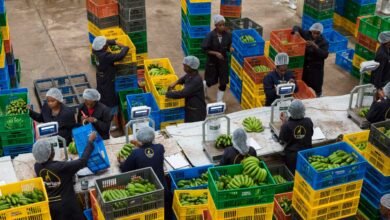
By Vincent Odhiambo | The government is making a fresh attempt to revive Kenya’s cotton and pyrethrum sub-sectors a move that could cost taxpayer Ksh.3 billion.
A new report on the revitalization and revival of cotton and pyrethrum indicates that cotton will require investments of about Ksh.1.9 billion while pyrethrum will require Ksh.1.1 billion even as the government pledges to enforce a law that requires the packaging of potatoes to be in bags not exceeding 50 kilogrammes.
Kenya, which was the global leading exporter of pyrethrum in the 1970s, has seen the sector crumble on the back of mismanagement and corruption that was witnessed in the 1990s.
According to sub-sectors, the government will require at least 3 billion shillings to revitalise the two agro sub-sectors.
“We’re talking of about Ksh.1.9 billion for cotton and pyrethrum Ksh.1.1 billion and then we get a team that can make sure that every one of those shillings gets into the process of reviving the crops.” Sais George Wachira, the task force chairman of the national steering committee on the revitalization and revival of the cotton and pyrethrum.
The government will also need to update regulations and management systems in order for the crops to be able to fairly compete in the liberalized global market.
Agriculture Cabinet Secretary Peter Munya said the country’s overdependence on the importation of cotton was long overdue.
“We can’t continue relying on importing cotton from our neighbors when we have a lot of arable lands that are idle and not utilized for production,” said C.S Munya.
In November last year, it was seen as a successful trial to revive the sector when the government authorized the cultivation of genetically modified cotton whose seeds are able to resist the African bollworm.
Illegalization of potato packaging bags
On a similar front, however, Irish potato farmers around the country are a happy lot following the government’s pledge to enforce regulations that will make it illegal to package potatoes in bags exceeding 50 kilogrammes. The packaging was unsuccessfully challenged in court by a section of traders.
C.S Munya now wants the law enforcement agencies and regulators at both the national and county levels to ensure the law is observed.
“These regulations are good for the industry, for our farmers and for our traders. They’re intended to bring fairness in the value chain so that we make sure that there’s nobody exploited,” added C.S Munya.
Munya warned that if the institutions fail to affair the outlined policies, crumbling down sectors like tea was a real threat and that immediate actions were needed.
“You take over a sector you’ve just been given a mandate by the farmers to manage a sector for them then once you’ve been given the farmers don’t matter anymore. You move on doing other things that have nothing to do with the core mission that you’re given by the farmer.” He said.





